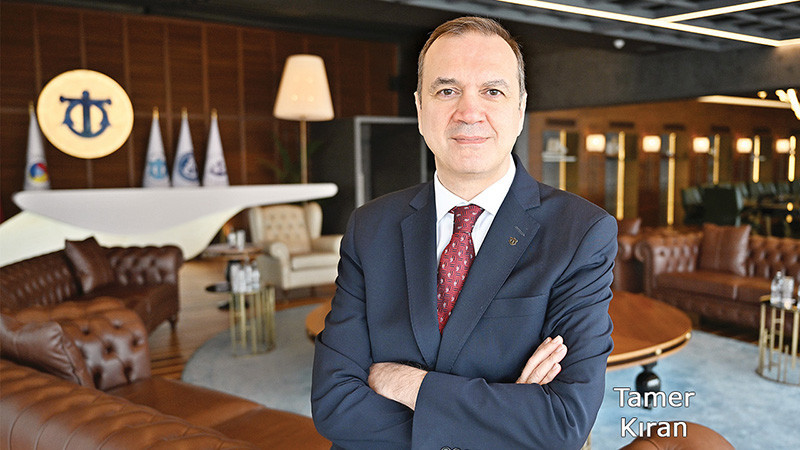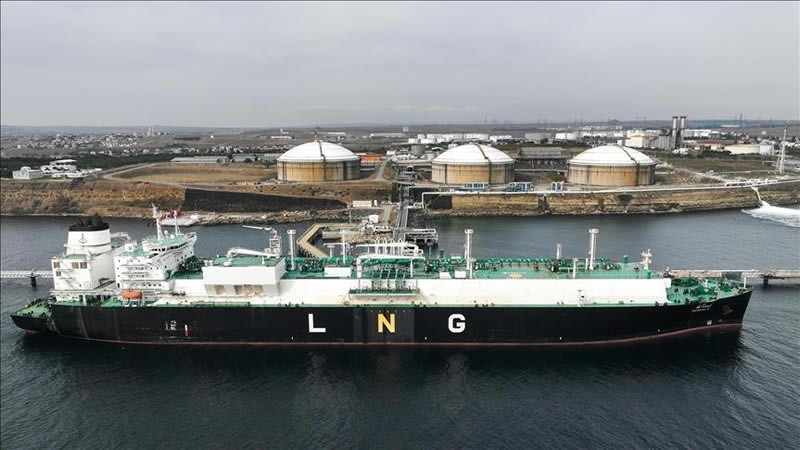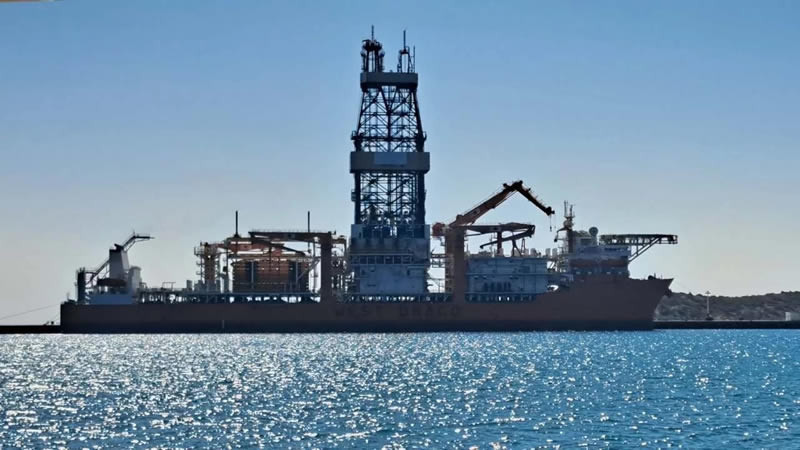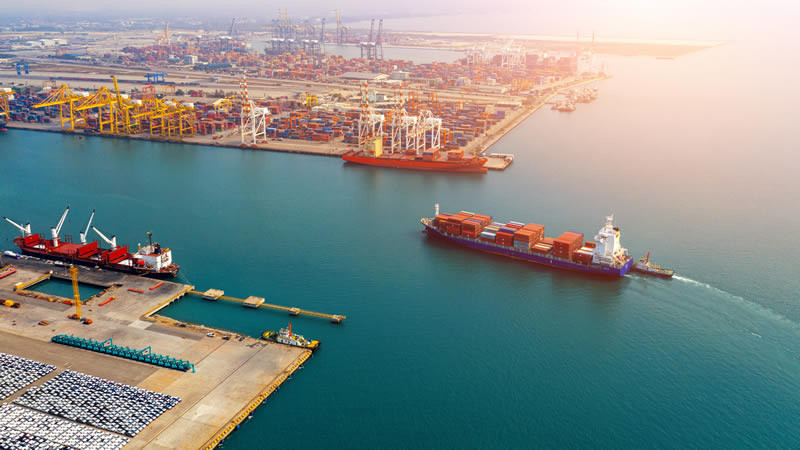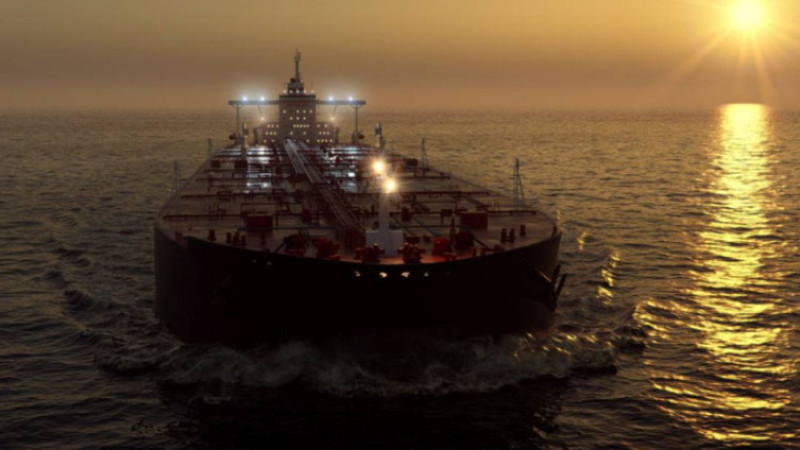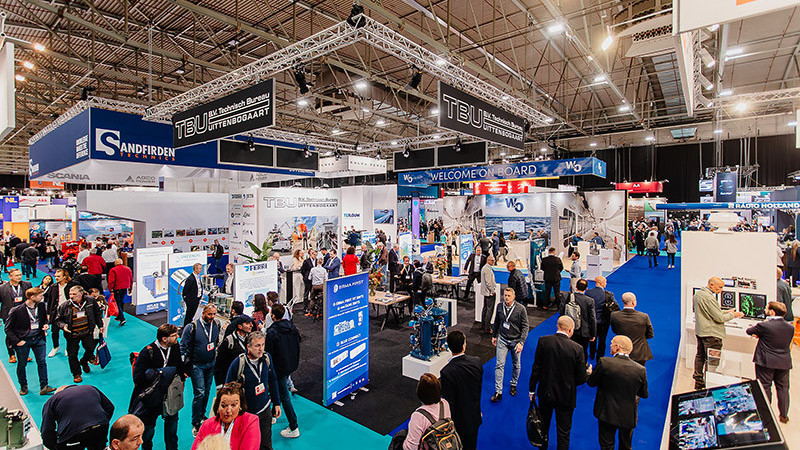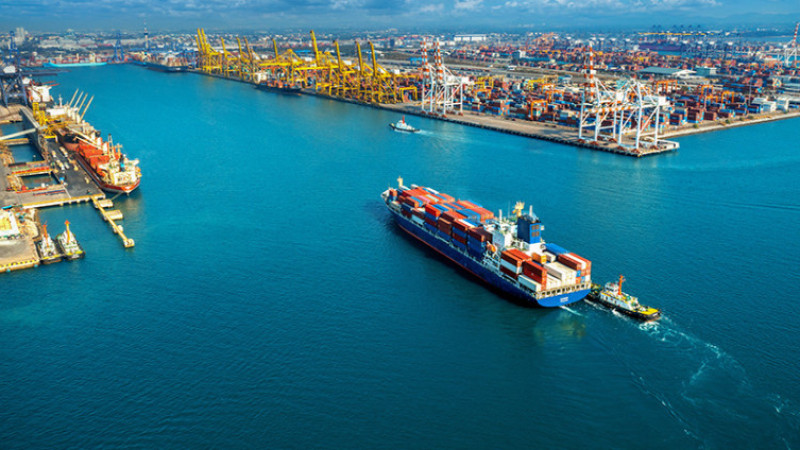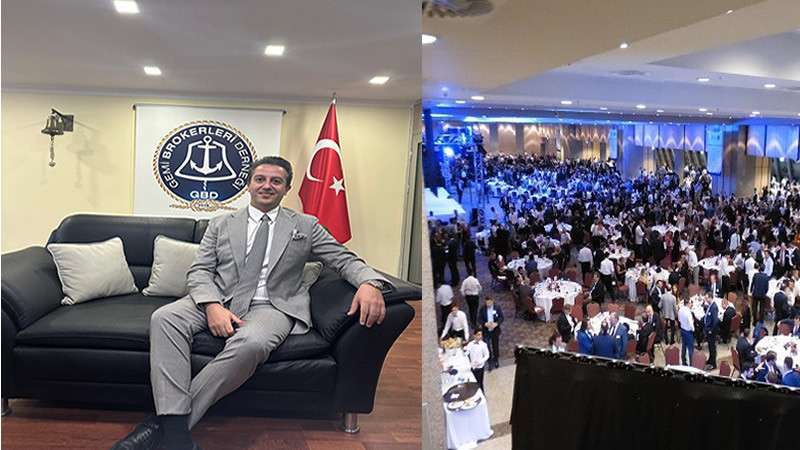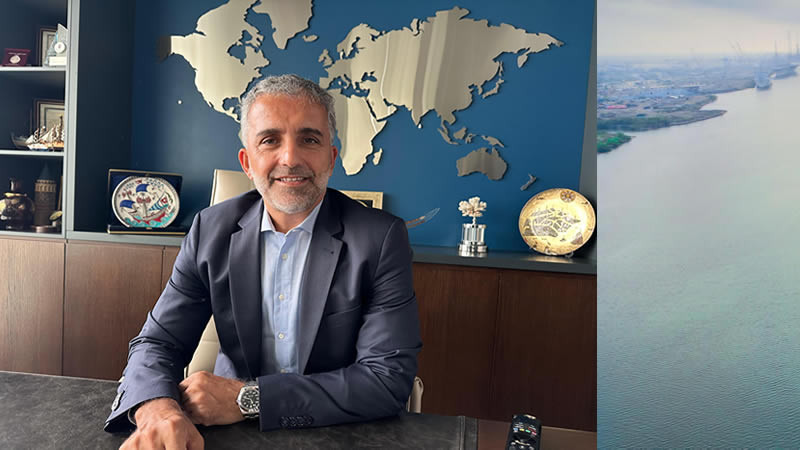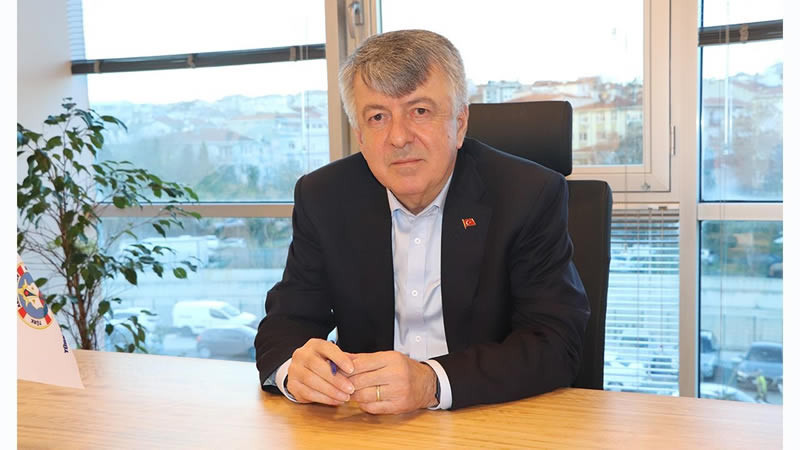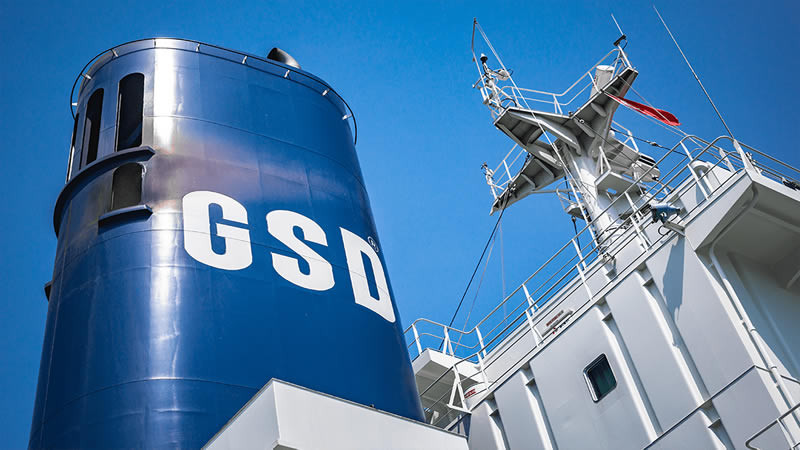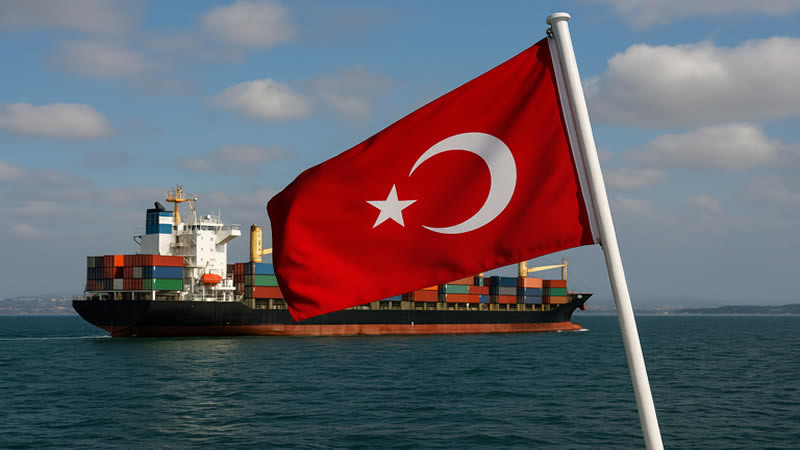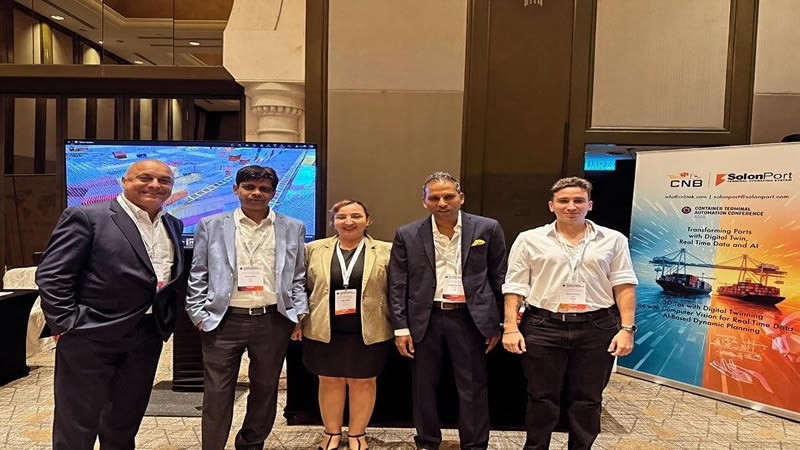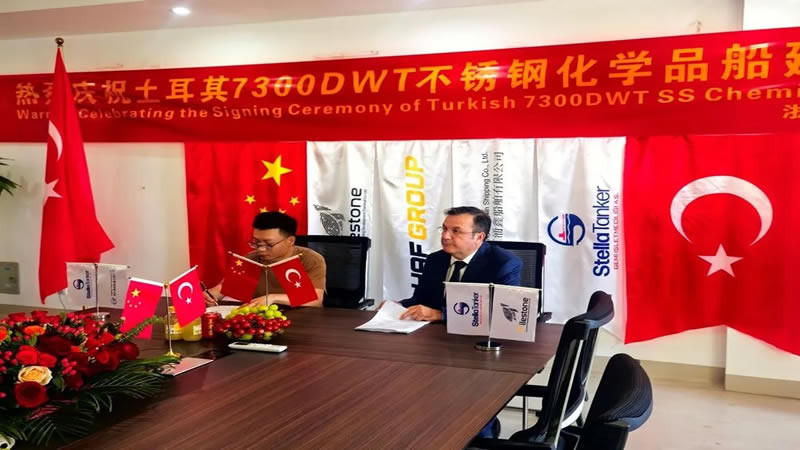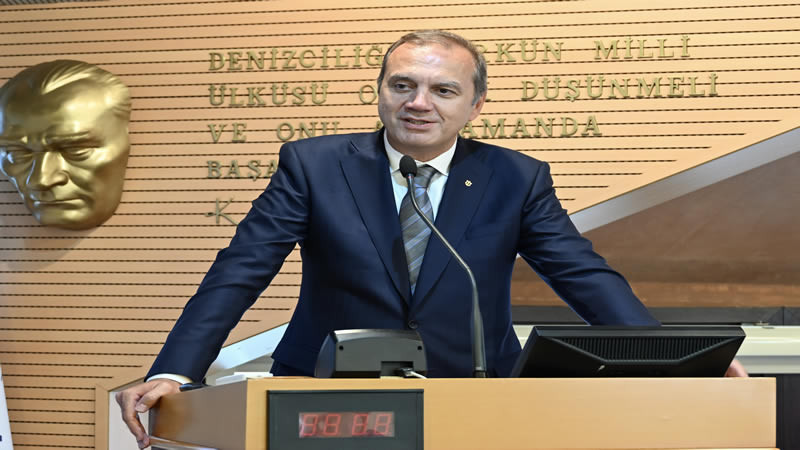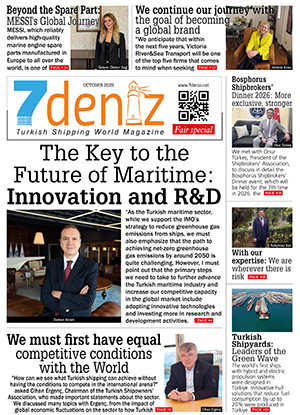Turkish Shipyards Take the Global Stage Under GİSBİR’s Leadership
GİSBİR’s Nurettin Çalışkan outlines Turkey’s global shipbuilding vision and ongoing efforts.
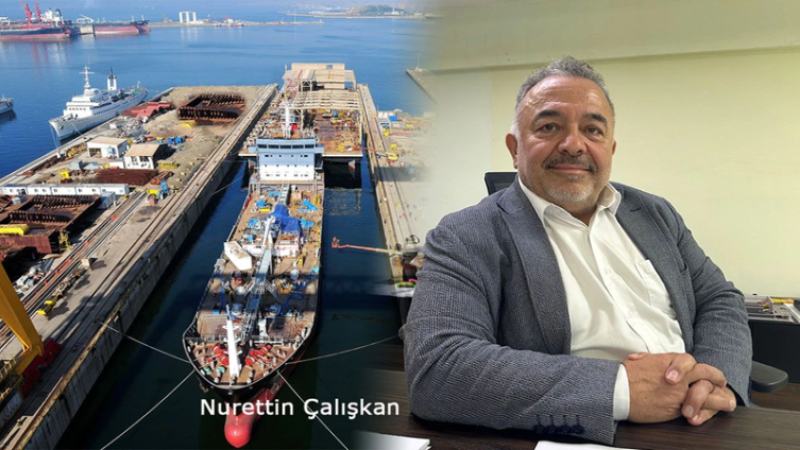
Nurettin Çalışkan, Board Member of the Turkish Shipbuilders’ Association (GİSBİR) and Chairman of its Foreign Relations Committee, shared insights into the position and competitiveness of Turkey’s shipbuilding industry in global markets, along with the association’s efforts and future plans.
“Over the past 10–15 years, GİSBİR has significantly increased its global recognition. Our industry's success stories, built on innovative and eco-friendly vessels — many of which are the first of their kind in the world — continue to pave the way forward. Today, GİSBİR is a member of SEA Europe, the umbrella organization for shipbuilding in Europe, as well as the ASEF Council alongside China, Japan, and Korea. We are also part of UNEP MAP, a UN-affiliated body. Furthermore, we regularly take part in presentations, workshops, and meetings held by IMO, OECD, and various UN organizations,” Çalışkan explained, underlining that they are leaving no gaps in the pursuit of international recognition.
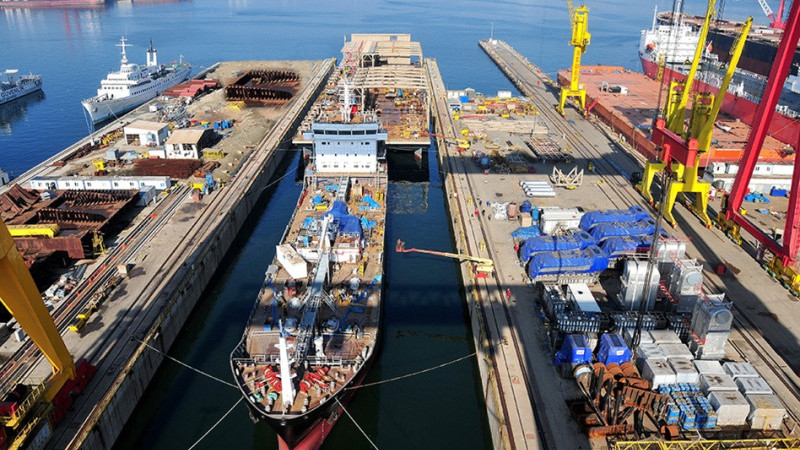
Reflecting on the work of the Foreign Relations Committee, Çalışkan stated:
“Since taking on the role of Chairman, our main goal has been to promote GİSBİR and the Turkish shipbuilding sector more actively abroad. To do this, we’ve set several targets — chief among them is participating in around five to six international fairs each year. At some of these, we set up exhibition stands; at others, we send official representatives regularly. These include not only shipbuilding fairs but also superyacht exhibitions. We also attend a number of conferences on a consistent basis. This is not a one-person job — it requires true teamwork. We are fortunate to have a strong board of directors, the vision and support of our Chairman Mr. Murat Kıran, and an excellent secretariat that gives us a major advantage in these efforts.”
He emphasized that promoting Turkey abroad is not enough — foreign representatives must also be brought to Turkey.
“For years, we’ve partnered with Mare Forum, a company that organizes ship and yacht conferences in 15 cities worldwide, to host two major events in Turkey: Mare Forum Istanbul and Superyacht Türkiye. Each year, these conferences bring together around 50–60 international guests who are experts in their fields. Together with Turkish panelists and industry participants, we engage in in-depth discussions on the shipbuilding and yacht sectors. We explore questions such as: ‘What more can be done? What is the current state of the industry? What are the positive and negative developments we are seeing?’”
Çalışkan added that the Mare Forum Istanbul and Superyacht Türkiye events have not only strengthened GİSBİR’s brand visibility but also boosted motivation for organizing such initiatives.
“This motivation has spread to other GİSBİR committees as well, creating a stronger and more synergistic ecosystem for our industry. For example, by the end of this year, our Technical Affairs and R&D Committee will host the ISO/TC 8 Ships and Marine Technology General Assembly of the International Organization for Standardization (ISO) here in Istanbul under GİSBİR’s leadership. Another committee is actively working on the PERCON B2B event, which also includes foreign participants. In short, while our committee is leading much of this work, activities across all GİSBİR committees have reached such a level that our schedule is now packed with conferences, fairs, and panel invitations. Unfortunately, we even have to decline some invitations due to time constraints.”
Target Regions and Global Outreach of GİSBİR
Nurettin Çalışkan, Board Member of GİSBİR and Chairman of the Foreign Relations Committee, provided insights into the regions the committee focuses on and the association’s growing international presence.
“The fairs we attend with exhibition stands are mostly held in Norway, Germany, Greece, the Netherlands, and Singapore — countries with strong shipbuilding industries and where Turkish yards receive significant orders,” said Çalışkan. “Norway is especially important, as more than half of our yards’ business comes from this country. We visited Norway just two weeks ago. In addition to that, we engage with countries like the UK, Germany, the Netherlands, Ireland, and increasingly, several in Africa.”
Over the past 10–15 years, GİSBİR has significantly enhanced its global recognition. The association has helped promote the Turkish shipbuilding sector by showcasing its innovative and eco-friendly vessels, many of which are global firsts. GİSBİR is a member of SEA Europe, the ASEF Council alongside China, Japan, and Korea, and the UNEP MAP under the United Nations. GİSBİR also participates in meetings and workshops held by IMO, OECD, and other UN organizations.
“We aim to leave no gaps in our global presence,” Çalışkan emphasized. “For this reason, we also attend one or two events annually in the United States, such as the CMA Shipping Conference and Exhibition in Connecticut, and the annual Turkish-American Business Council meetings in Washington, D.C., where we meet with U.S. and Turkish policymakers. Given current global dynamics, it’s clearer than ever how important it is to stay active in every region.”
International Representation Activities
Beyond exhibitions, GİSBİR organizes receptions and scheduled visits in strategic countries. The association currently has two official foreign offices: one in Washington, D.C., and another in Hamburg.
“Thanks to the valuable support of our Germany Representative, Saruhan Bozyakalı, we organize a special GİSBİR reception at the SMM Hamburg fair — an event that has become one of the most anticipated gatherings,” said Çalışkan. “Greece is also a key market, especially for ship repair. We regularly attend the Posidonia fair in Athens every two years, where we co-host a cocktail event with the Turkish Chamber of Shipping and the Ship and Yacht Exporters’ Association (GYHİB), inviting international partners and key stakeholders.”
“Turkey is Irreplaceable”
Emphasizing Turkey’s strategic importance for Europe, Çalışkan stated:
“When we speak with foreign firms and industry representatives about new builds or repair services, it’s clear that Turkey’s quality is widely recognized. We are highly advanced in technology, production, and outfitting. Turkey is indispensable in the repair and maintenance field. Even though Europe is now attempting to expand its shipbuilding and repair capacities by opening new yards, they can never replace Turkey. We produce at world standards, and our workforce is experienced and skilled.
However, recent domestic economic challenges — especially inflation and rising labor costs — have begun to weaken our competitiveness. Hopefully, once our economy stabilizes, we’ll regain our strong position.”
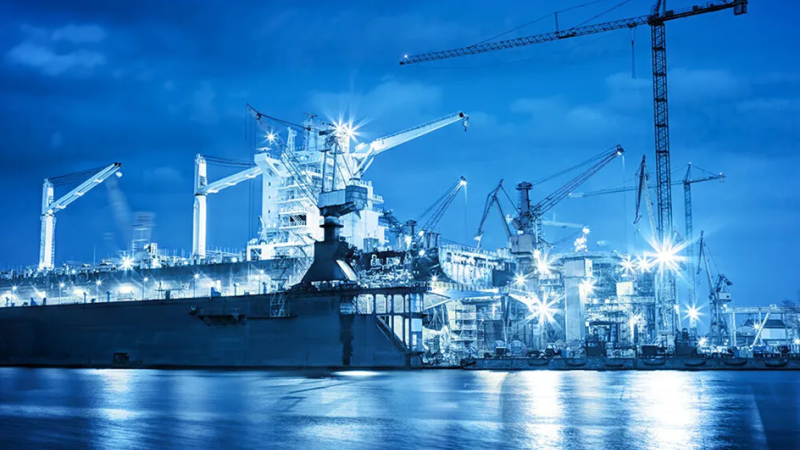
This Year’s Activities
Continuing his remarks, Nurettin Çalışkan said:
“First of all, I’d like to thank my team at my own company. Without their support, I wouldn't have had the time to dedicate myself this much to GİSBİR’s work. This year, we participated in the Nor-Shipping exhibition and hosted the Mare Forum events as the main sponsor. Outside of Europe, we also took part in the Sea Asia exhibition in Singapore with a stand, and in March, we attended the CMA (Connecticut Maritime Association) fair in the United States.
Later this year, we will participate in Europort in Rotterdam and the Monaco Yacht Show. During the Monaco event, we’ll also join the Mare Forum Superyacht Europe Conference as panelists alongside two colleagues from the industry. In September, we are set to represent Turkey as speakers at the Mare Forum Superyacht Conference in Fort Lauderdale, Florida.”
Turkey Can Rapidly Adapt to New Regulations
Çalışkan also shared his views on global challenges and the impact of maritime regulations on the industry:
“I believe the Turkish maritime sector will continue to grow positively. Of course, many new regulations are being introduced worldwide, but Turkey has the infrastructure and human resources to quickly understand and implement these changes. Our personnel now have a strong technical background, and shipyard owners are investing heavily in their facilities. We need to focus more on efficiency in terms of knowledge, equipment, and infrastructure.”
DTO’s U.S. Working Group Has Kicked Off Activities
Çalışkan stated that a new working group has been formed within the Chamber of Shipping (DTO):
“Thanks to our DTO Chairman, Mr. Tamer Kıran, who invited me to represent GİSBİR in this newly established group. Together with eight other industry representatives, we have started working on the shipbuilding sector in the United States. We're exploring how we can contribute to this field with our expertise and what potential collaborations might look like.”
From Education to Entrepreneurship: A Journey Through Marine and Composite Industries
Speaking about the founding and operations of his company, Çalışkan said:
“After graduating from Istanbul Technical University’s Naval Architecture Department, I went to the U.S. to pursue a master’s degree in economics. I founded my company there in 1992. Initially, we focused on the sales and servicing of superyacht equipment. Toward the late 1990s, we shifted from the yachting sector into composites and began manufacturing composite yachts. That transition opened major opportunities — today, we are one of the key players in Turkey’s defense and aerospace industries.
We are also active in the automotive sector and the production of wind turbine blades. Currently, we operate two companies: Neva Marine and Neva Composite Technologies. At Neva Marine, we mainly handle yacht equipment sales, installation, and servicing. Composites are a broad sector, and we are now one of the main suppliers for major firms in Turkey’s defense industry. We also actively work in the wind, automotive, and aviation sectors. Almost every aerospace product manufactured in Turkey involves our materials or engineering support.
We currently employ 22 people under the Neva umbrella. Recently, we made a new investment: we acquired the İzmir-based factory of a British company. This facility will operate as a PVC foam processing center, producing the main raw material used in composites. We plan to open the factory in Yalova around September or October, and once operational, it will be one of only 20 such plants in the world. We cut foam materials into Lego-like kits to help manufacturers streamline mass production. These products mainly serve the wind energy and maritime sectors and will be manufactured using 3- and 5-axis CNC machines. We are very excited about this investment, which we believe will create significant added value for Turkey.”
Barriers to Developing a True Boating Culture
Çalışkan also shared insights into the challenges facing the yacht industry in Turkey:
“We specialize in heavy-duty equipment for mega yachts, and nearly all the components used in such vessels are available in our inventory. We focus heavily on engineering. Like shipbuilding, the yacht industry is affected by high labor costs. Turkey typically ranks third globally in yacht construction, after Italy and the Netherlands — occasionally switching between third and fourth place with Germany.
However, the real foundation for a country’s maritime culture lies in vessels under 24 meters. Whether a nation has a genuine boating culture is best reflected by the prevalence of boats in the 8 to 15-meter range — used for leisure, sailing, and fishing. If these boats are too expensive and marina space is scarce and costly, then naturally, maritime culture cannot flourish.
For example, applying an upfront 20% VAT on an 8-meter boat essentially erases a company’s profit margin. This creates a significant financial burden. In short, VAT exemptions are still problematic for boats under 24 meters.”
U.S.–China Competition in Shipbuilding
Çalışkan also evaluated the prospects of collaborating with the United States in the field of shipbuilding:
“The U.S. shipbuilding industry is currently in poor shape—its global market share is less than 1%, while China holds around 50%. One of the key goals of former President Trump’s executive order on shipbuilding was to boost the U.S. industry to a level that could compete with China. But doing that without external support seems highly unlikely.
When it comes to large commercial vessels, the U.S. has already initiated direct talks with countries like Japan and South Korea. However, Turkey has deep experience and expertise in specialized vessel segments. We strongly believe there is room for collaboration with the U.S. in these areas, and we are actively working to explore those opportunities.”
Source: 7DENİZ DERGİSİ



